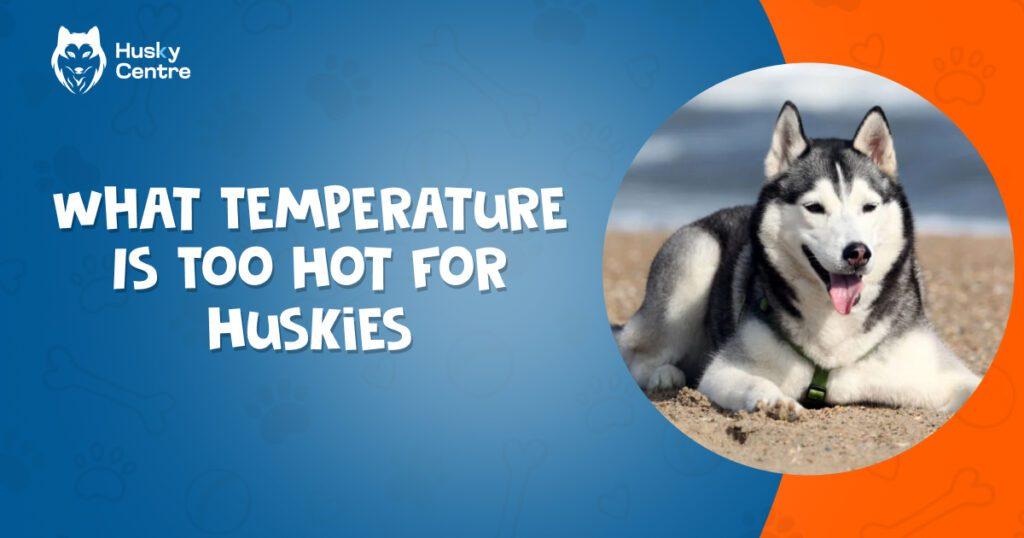Huskies may have diarrhea due to dietary indiscretion, infections, parasites, or other medical issues. It can also be triggered by stress, new foods, or an underlying condition.
Diarrhea in dogs can result from various factors, including stress, medication, new foods, infections, or underlying health conditions. Stressful events like adopting a new dog or moving homes can also be a contributing factor. There are remedies and prevention tips that can help manage and prevent diarrhea in huskies, such as fasting and providing time for the gastrointestinal tract to heal and reset.
It’s essential to identify the cause and seek treatment to help alleviate the diarrhea and ensure the well-being of your husky.
Common Causes Of Husky Diarrhea
Diarrhea in huskies can be a concerning issue for pet owners. Understanding the potential causes can help in resolving the problem effectively. Here are some common reasons why huskies may experience diarrhea:
Stress Or Change In Environment
Huskies are sensitive to changes in their environment, which can lead to stress-induced diarrhea. Events such as adopting a new dog, welcoming a new family member, or moving to a new home can trigger their digestive upset.
Dietary Indiscretion Or Food Intolerance
Huskies may experience diarrhea due to dietary indiscretion, such as consuming human food or new food that doesn’t agree with their digestive system. Food intolerance can also lead to gastrointestinal distress.
Parasites Or Infections
Parasites or infections, such as gastrointestinal worms or bacterial pathogens, can cause diarrhea in huskies. It’s important to address these issues promptly to restore the dog’s gastrointestinal health.
Identifying Diarrhea In Huskies
Diarrhea can be a common occurrence in huskies and can have various causes. As a responsible husky owner, it is important to be able to identify when your furry friend is experiencing diarrhea. By recognizing the signs and knowing when to seek veterinary attention, you can help ensure your husky receives the necessary care to address their discomfort.
Signs To Look Out For
- Loose, watery stools: Keep an eye on your husky’s bowel movements. If their stools are consistently loose or watery, it may indicate the presence of diarrhea.
- Increased frequency of bowel movements: Notice if your husky is having more bowel movements than usual. Diarrhea can cause them to need to go more often.
- Bloody or mucus-filled stools: Blood or mucus in the stools can be a sign of a more serious underlying issue, and it’s important to seek veterinary attention if you notice these symptoms.
- Abdominal discomfort: Keep an eye out for any signs of discomfort in your husky, such as whining, restlessness, or a hunched posture.
- Loss of appetite: Diarrhea can often lead to a decrease in appetite. If your husky is refusing to eat or showing a reduced interest in food, it may be a sign of digestive distress.
- Lethargy: A general lack of energy or excessive sleepiness can also be indicative of diarrhea. If your husky is unusually tired or lacks their usual enthusiasm, it might be a cause for concern.
When To Seek Veterinary Attention
While mild cases of diarrhea can often resolve on their own within a day or two, there are instances when it is necessary to seek veterinary attention. It’s vital to stay vigilant and take action if you observe:
- Severe or persistent diarrhea: If your husky’s diarrhea worsens or lasts for more than 48 hours, it’s crucial to consult your veterinarian. Prolonged diarrhea can lead to dehydration and other complications.
- Presence of blood or mucus: Any appearance of blood or mucus in the stools requires immediate veterinary evaluation, as it may indicate an underlying medical condition that needs attention.
- Severe abdominal pain: If your husky exhibits severe abdominal pain, such as prolonged whining, crying, or discomfort, it’s best to seek professional help to determine the cause and provide appropriate treatment.
- Signs of dehydration: Keep an eye out for symptoms such as excessive thirst, dry gums, sunken eyes, or lethargy, as these may indicate dehydration. Dehydration can be a serious consequence of prolonged diarrhea and requires prompt veterinary attention.
- Other concerning symptoms: If your husky experiences additional worrisome symptoms like vomiting, fever, or significant weight loss, it’s important to consult with your veterinarian as soon as possible.
Remember, the well-being of your husky is your priority. By recognizing the signs of diarrhea and knowing when to take action, you can ensure your husky receives the necessary care to recover swiftly and comfortably.
Addressing Husky Diarrhea
Husky diarrhea can be concerning for pet owners, but it’s essential to address the issue promptly to ensure your furry friend’s well-being. Understanding the potential causes and implementing appropriate steps can help alleviate your husky’s discomfort and promote recovery.
Home Remedies And Prevention Tips
When addressing husky diarrhea, certain home remedies and prevention tips can be beneficial in managing the condition effectively. These simple strategies can aid in soothing your husky’s digestive system and reducing the chances of recurrent episodes.
Fasting And Resetting The Digestive Tract
One effective approach to address husky diarrhea is fasting and resetting the digestive tract. By allowing your husky’s stomach to rest through a brief period of fasting, you can help alleviate digestive issues and promote the healing process. Introducing a bland diet gradually can aid in resetting the digestive system and easing symptoms.
When To Worry About Husky Diarrhea
It’s essential to monitor your husky’s diarrhea for signs of severity and potential long-term effects.
Understanding The Severity
If your husky’s diarrhea is accompanied by blood, severe dehydration, or persistent vomiting, it’s crucial to seek veterinary attention immediately.
Potential Long-term Effects
Ignoring chronic diarrhea can lead to malnutrition, electrolyte imbalances, and compromised overall health in your husky.
Special Considerations For Husky Diarrhea
Husky diarrhea can be due to dietary indiscretion, parasites, infections, or medical conditions like pancreatic or gastrointestinal issues. Stress, new diets, or human food can also cause watery stool. It’s important to identify and treat the underlying cause, and provide care to alleviate the diarrhea and support your husky’s digestive health.
Dealing With Food Allergies
If your husky is experiencing diarrhea, food allergies could be a potential culprit. It’s important to remember that huskies, like all dogs, can develop allergies to certain foods. Common allergens for dogs include grains like wheat and corn, as well as proteins such as chicken and beef.
To determine if your husky has a food allergy, it’s recommended to conduct an elimination diet. This involves removing potential allergens from your dog’s diet and gradually reintroducing them to identify any triggers. Keep a close eye on your husky’s symptoms, including diarrhea, during this process. If you notice a correlation between certain foods and diarrhea episodes, it’s likely that your husky is allergic to those ingredients.
To prevent diarrhea caused by food allergies, consider switching your husky to a hypoallergenic or limited ingredient diet. These specialized diets are formulated to minimize allergenic ingredients and provide complete nutrition for your furry friend.
Preventing Diarrhea Caused By Parasites
Another factor to consider when dealing with husky diarrhea is the presence of parasites. Parasites such as worms can wreak havoc on your dog’s digestive system, leading to diarrhea and other symptoms. Regular deworming is crucial to prevent infestation and minimize the risk of diarrhea.
Consult with your veterinarian to determine the appropriate deworming schedule for your husky. They can recommend the most effective and safe deworming products for your specific breed. Additionally, it’s important to maintain good hygiene practices, such as cleaning up after your husky and regularly washing their bedding, to reduce the chances of reinfection.
Remember, prevention is key when it comes to diarrhea caused by parasites. Regularly deworming your husky and practicing good hygiene will help keep their digestive system healthy and minimize the risk of diarrhea episodes.
By addressing food allergies and preventing parasite infestations, you can help manage and prevent diarrhea in your beloved husky. Remember to consult with your veterinarian for personalized advice and recommendations tailored to your husky’s specific needs.
Frequently Asked Questions For Why Does My Husky Have Diarrhea?
What To Do If My Husky Has Diarrhea?
Huskies need special care; first, withhold food for 12-24 hours. Then introduce bland food gradually. Monitor closely and seek vet if symptoms persist.
What Can I Give My Dog To Stop Diarrhea Fast?
To stop diarrhea fast in your dog, consider fasting them for 12-24 hours to allow their gastrointestinal tract to heal. After fasting, reintroduce a bland diet of boiled chicken and rice. If the diarrhea persists or worsens, consult a veterinarian for further evaluation and treatment.
Why Is My Husky Poop So Watery?
Runny husky poop may be due to stress, new food, infections, or underlying conditions. Seek veterinary advice for proper diagnosis and treatment.
When Should You Worry About Dog Diarrhea?
If your dog has persistent diarrhea for more than 24 hours, consult a vet immediately.
Conclusion
There are multiple reasons why your husky may have diarrhea. It can be due to stress, medication, a change in diet, or even an underlying medical condition. Identifying the cause is crucial in order to provide the appropriate treatment. If your husky experiences diarrhea, it is important to monitor their symptoms and consult with a veterinarian if it persists or worsens.
Taking necessary steps and giving your husky time to heal can help alleviate their discomfort and restore their digestive health.


Meet Jarred, the heart and soul behind HukyCentre. With a deep affection for furry friends, he pours his passion into every word he writes. His genuine love for dogs shines through in his engaging and informative content. As a dedicated dog enthusiast, Jarred’s goal is to share valuable insights and tips that resonate with fellow dog lovers. Join Jarred on the journey as he celebrates the joy and companionship that dogs bring into our lives.



